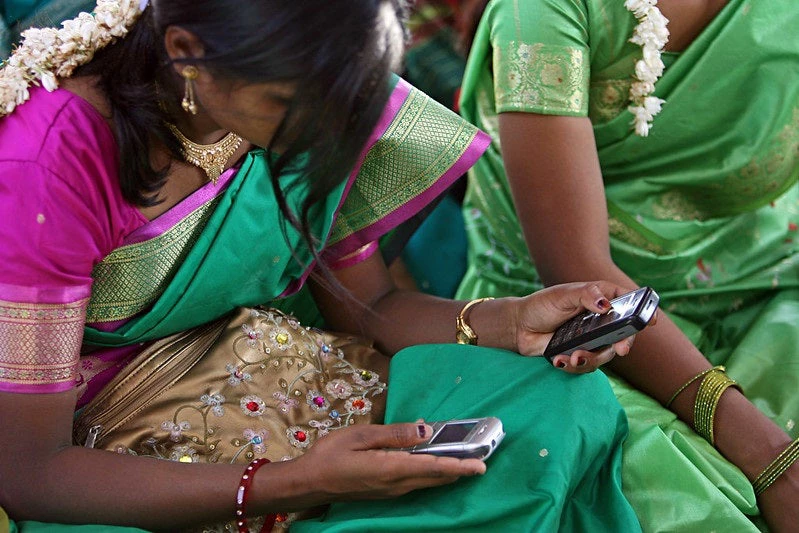 Mobile operators increase access to digital resources while schools are closed
Mobile operators increase access to digital resources while schools are closed
With schools closed around the world as a result of the coronavirus pandemic, many countries that are seeking to promote and support online learning for students at home are running into challenges.
One easy-to-understand challenge relates to access:
How can we – quickly – help students (and teachers) get online, and stay online?
There are numerous other challenges, of course, many of them very difficult to solve -- especially in the short run in a crisis environment. (A recent World Bank quick response guidance note identifies some of them.) But some of the access-related challenges can be addressed.
Many ministries of education are working with mobile operators, telecom providers, ISPs and other companies to increase access to digital resources while schools are closed. Drawn from the World Bank’s tracking of edtech and remote learning during the COVID-19 pandemic in specific countries, here are 10 practical examples of what is happening in this regard around the world, very quickly, related to improving connectivity:
1. Zero-rating
Ministries of education are working with mobile operators to designate that data related to specific educational web sites or applications be charged a zero tariff, i.e., that no data charges will apply when these resources are accessed. “Zero-rating” is one of the quickest ways to improve cost-free access to online materials. In some countries it is already in widespread use, in others it is not used (or even unknown). [Example country: South Africa]
2. Bandwidth shaping
Ministries of education can request that telecom providers give preferential access to scarce bandwidth for education-related data and services . In addition, countries can request that web and cloud hosting providers provide increased bandwidth at the server level. [Kenya]
3. Lifting data caps
Some countries are lifting data caps on educational connectivity programs. In other words: A student used to be able to use 4GB a month for free; now she can use 8GB. [Turkey]
4. Unbanning VOIP
Where VOIP (“voice over Internet protocol,” basically calling over the internet) is banned, ministries of education can work with regulators and the ministry of telecommunications to allow it, in order to enable communication between educators and students in support of remote learning. [Oman]
5. Tapping Universal Service Funds
Many countries have Universal Service Funds that can be tapped to promote access to connectivity to the benefit of education, and/or in crisis situations. Many ministries of education don’t realize that these monies, which can be an excellent source of quick funding in some countries, can be used to help meet educational objectives.
6. Distributing devices in communities
Ministries of education are working with mobile operators to help get more devices into the hands of learners and teachers in a variety of ways, including not only procuring and delivering new devices (in some cases, Universal Service Funds can be used to help with this), but also in inventorying, preparing and distributing devices from schools for home use. [Egypt]
7. Public hotspots, and lighting up old services and devices
Some ministries are working with Internet providers to set up free public Wi-Fi access points that students can walk to and upload/download data. Where past educational connectivity programs have run their course, some telecom providers are also simply turning them back on for previously registered devices. [United States]
8. SMS campaigns and call center support
Ministries of education can work with mobile providers to support awareness-raising campaigns in support of online learning via SMS (and in some cases, are working with the telecom ministry to enable related mass texting activities that may run afoul of regulations related to “text spam”) and to quickly set up call center helpdesks to support remotely located teachers, learners and their families. [Ecuador]
9. Free SIM cards
Ministries of education are working with mobile providers to make available free SIM cards for use by teachers and students, with expedited registration procedures, coupled with special data plans. [Kyrgyz Republic]
10. ___
We have left #10 blank here, as an acknowledgement that many more things are happening, and as an invitation for others to share what they are seeing, and know.
- - -
When it comes to providing access to online learning, connectivity is only the first step in a much larger process. In many ways, it is the easiest challenge to address. That said, for many students, there are very serious equity concerns and challenges at play, and the connectivity-related approaches identified here will not be enough. (Some countries are also returning to older technologies, like the traditional broadcast mass media of radio and television, to reach the widest number of learners.)
During the COVID-19 crisis, it is critical that ministries of education seeking to offer remote learning leverage partners and enlist the support of a broader ecosystem of actors. Whatever is done, however, governments would do well (as always) to be very careful about related agreements that they sign with private companies, and establish sunset provisions for new policies that are quickly put in place. This wil help ensure that agreements and practices enacted during a crisis situation don’t become permanent without further reflection.
(If you know of additional models in place that aren’t listed here, please feel free to reach out to us – either in the comments sections below, by tweeting at @WBedutech, or by sending us an email using a contact form on this web site.)
You may also be interested in the following posts from the EduTech blog archive:
Universal Service Funds & connecting schools to the Internet around the world
https://blogs.worldbank.org/edutech/universal-service-funds-connecting-schools-internet-around-world
Zero-rating educational content on the Internet
https://blogs.worldbank.org/edutech/zero-rating-educational-content-internet
How many schools are connected to the Internet?
https://blogs.worldbank.org/edutech/how-many-schools-are-connected-internet


Join the Conversation